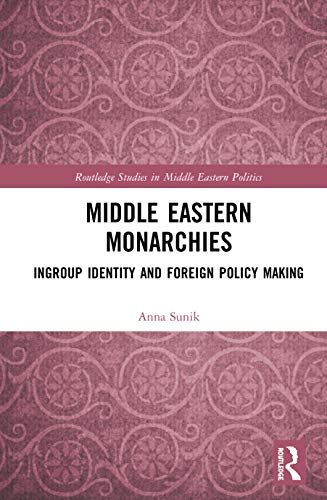

Most ebook files are in PDF format, so you can easily read them using various software such as Foxit Reader or directly on the Google Chrome browser.
Some ebook files are released by publishers in other formats such as .awz, .mobi, .epub, .fb2, etc. You may need to install specific software to read these formats on mobile/PC, such as Calibre.
Please read the tutorial at this link. https://ebooknice.com/page/post?id=faq
We offer FREE conversion to the popular formats you request; however, this may take some time. Therefore, right after payment, please email us, and we will try to provide the service as quickly as possible.
For some exceptional file formats or broken links (if any), please refrain from opening any disputes. Instead, email us first, and we will try to assist within a maximum of 6 hours.
EbookNice Team

Status:
Available5.0
10 reviewsThe monograph explores the dynamics of ingroup identity in the foreign policy-making of Middle Eastern monarchies from the evolution of the regional system after the World Wars until the present. Utilising an innovative theoretical framework that combines Foreign Policy Analysis in the context of authoritarian regimes and Social Identity Theory, the book theorizes the origins and inner workings of a "monarchic peace" among hereditary regimes in the Middle East, including the Gulf monarchies as well as Jordan and Morocco.
While the phenomenon of the "democratic peace" is well established in political science, this book argues that like the examined "monarchic peace", it is, in fact, a sub-case of a broader Similar Political Systems Peace (SPSP). The theory posits that monarchies do not wage war against each other because they recognize each other as members of the same "ingroup" which allows for other mechanisms of conflict resolution – behaviour that is allowed against outsiders might be prohibited against members of the same club or "family". The theory is illustrated with numerous case studies that look at overall regional dynamics as well as four crucial cases of monarchic interstate conflict: Bahraini-Qatari relations, the Saudi-Hashemite rivalry, and the relations between Kuwait and Iraq and Iran and the UAE.
This in-depth account of the foreign policies and community, connecting Middle Eastern monarchies will be of interest to readers in international relations, authoritarianism studies, Middle East and Persian Gulf politics.